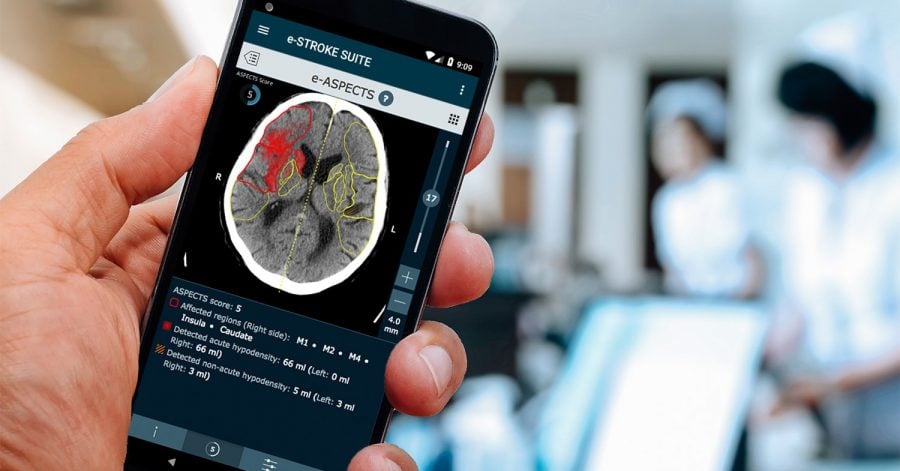British MedTech startup Brainomix, which has a Greek co-founder, raised over €18M in a Series B, to scale its AI-based solution. In almost a decade since the launch, it has raised over €30M in over six rounds. Brainomix is working on creating imaging biomarkers. The team is developing a precision medicine solution that aims to help health practitioners offer personalized treatments.
“When we started our venture with Brainomix, AI-powered decision support technologies were still at a very early stage and the physicians/radiologists were skeptical about its utility. We had to invest in generating clinical evidence to show that more patients get treated when physicians use our technologies. Now – especially in the last year, probably accelerated by the pandemic – AI has become broadly accepted in medical diagnosis, as a way to support (not replace!) physicians,” Michalis Papadakis, co-founder and CEO of Brainomix, shared with The Recursive.
The e-Stroke platform has been used for over 600K patients in 300 hospitals from 30 countries in Europe, the US, South America, and Asia. It has proved to encourage faster treatment which improves functional independence in stroke patients.
With this new round, they aim to tackle lung fibrosis and cancer solutions, after they initially focused on strokes. The team will target clinical trials to achieve broader adoption and develop their team at Oxford as well as globally.
How can AI help MedTech?
“We were seeing a big unmet need globally, with millions of patients missing out on life-saving stroke treatments because they were admitted in hospitals that didn’t have the right experience and expertise to reliably diagnose and treat these patients. We had the idea of using Artificial Intelligence to automate the analysis of brain CT scans of stroke patients and support front-line physicians to make confident diagnosis and treatment decisions,” Michalis Papadakis says.
The MedTech was developed in 2012 as a spin-out from the University of Oxford by Michalis Papadakis, co-founder and CEO, and Andrew Barker. Papadakis has a background in biochemistry, neuroscience, and medical innovation, while Barker has experience with marketing, management, and engineering.
Papadakis shared that they began by building the team, then the AI technology. The next developing phase boosted by persistence and innovation was validating the technology to ensure it is accurate and robust, followed by generating broad clinical adoption. Then, the startup received the ICT award of the Academic Enterprise Awards.
The CEO says they will remain focused on delivering solutions that address unmet needs. In a 2015 study, conducted by the American Thoracic Society, there were over 5M patients with idiopathic pulmonary fibrosis, with a mortality rate of 50% in 3-5 years after diagnosis; while another study shows that in 2018 there were estimated 18M cancer cases around the world.







